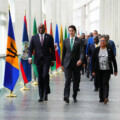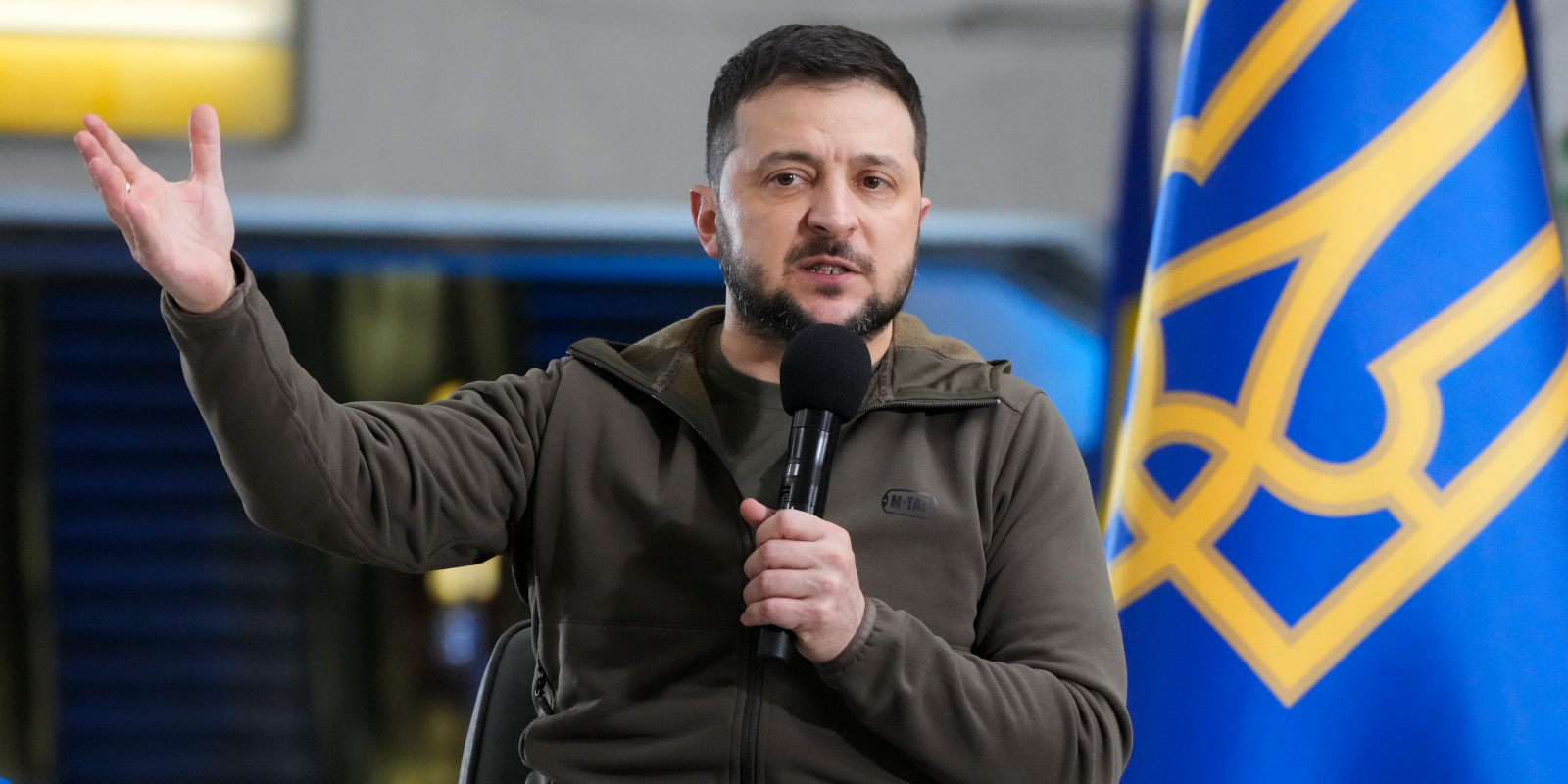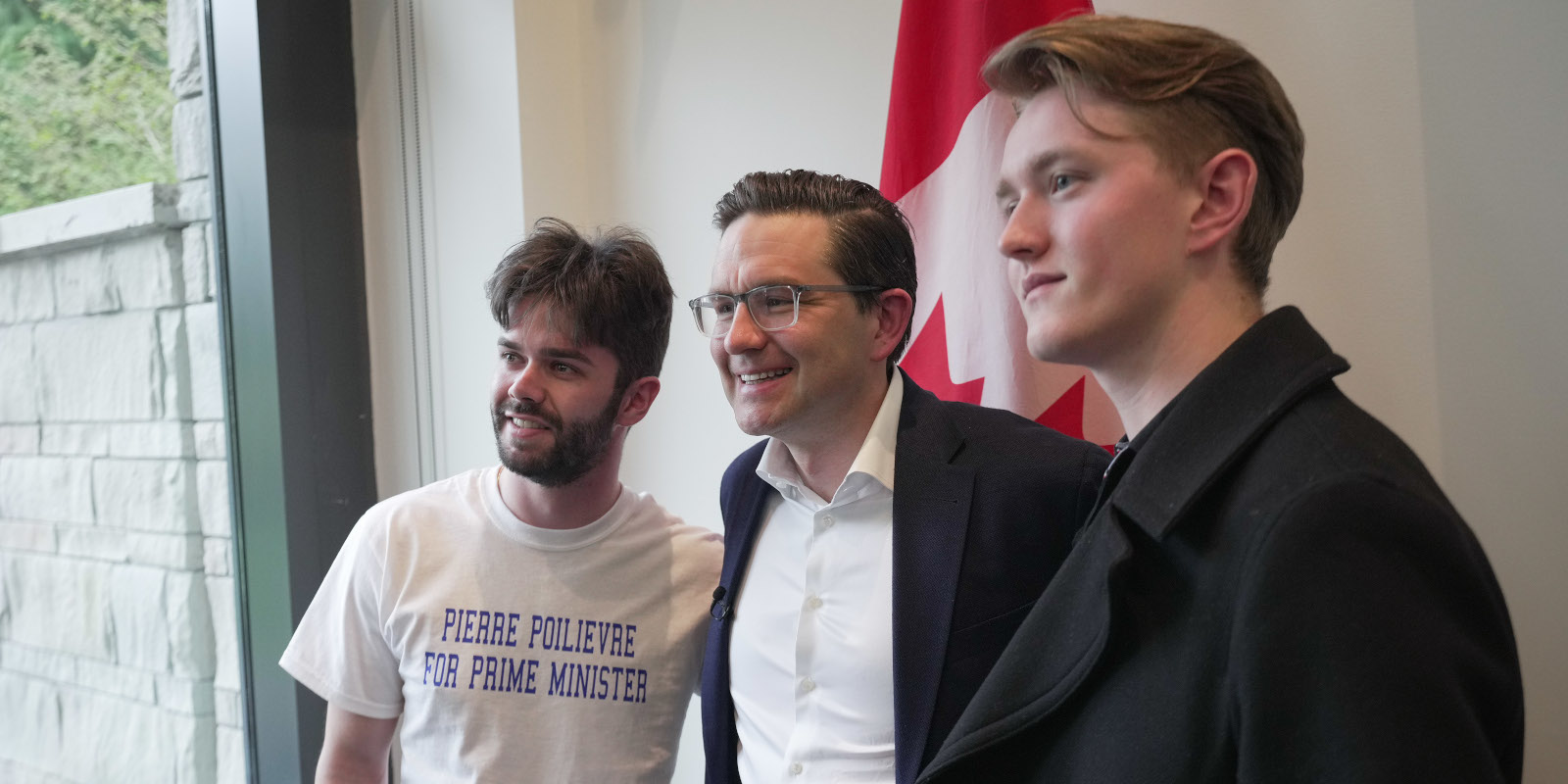Speaking in front of an audience of Canadian students yesterday morning, Ukrainian President Volodymyr Zelenskyy recalled his time visiting Toronto back in 2019, when the Toronto Raptors won the NBA championship.
They were a team that “no one [expected] to win”—much like Ukraine now, he said.
“By [coming] together and uniting, you do things that seem to be impossible…Who could have thought that three years later this would sound totally different?” said Zelenskyy.
The address happened via livestream to an in-person student audience at the University of Toronto and the Munk School of Global Affairs and Public Policy. University students at other Canadian universities also attended virtually.
Deputy Prime Minister Chrystia Freeland attended and spoke in person, mentioning how the government has committed $1.87 billion in financial assistance to Ukraine—of which $1.5 billion has already been delivered to Ukraine—as well as weapons.
“I know that [Ukraine] needs money to fight this war— and Canada is there…For as long as it takes, Canada will be there for Ukraine,” Freeland proclaimed. Her remarks were met with applause from the audience.
Zelenskyy explained how, since his election in 2019, Ukraine has been working towards building a country that is transparent and equal, and one where Ukrainians can grow in freedom and success. But, “today, the walls of [Ukrainian’s] buildings are transparent,” destroyed by Russian missiles and bombs, and Ukraine is now in survival mode.
Regarding east Ukraine, particularly Donetsk, Luhansk, and Crimea, he mentioned how Ukraine tried a number of diplomatic platforms and instruments with an aim toward peace, but Russia “wanted something very different.”
And though Ukraine and Russia share a border, they greatly differ “in actions, in words, and, most importantly, in values,” said Zelenskyy.
On infrastructure, he said that $10 billion was needed to rebuild east Ukraine in 2019. Now, Ukraine requires “hundreds of billions of dollars” to restore not only east Ukraine but the entire country.
Given the date of the event, Zelenskyy shared a piece of Ukrainian history. Every June 22nd, the exact day Nazi Germany bombarded Kyiv in 1941, Ukraine commemorates victims of World War II. Though the context is different this year, he said that “our spirits, our longing for freedom, and fight have not changed since”.
University students were given the opportunity to directly ask questions of the Ukrainian leader. When asked which historical/literary role models inspire him, he said “the people are our treasure,” and it is the ordinary, everyday people who are defending Ukraine that inspire him the most.
When questioned about self-centered nationalism and how to convince neighbours that democracy is worth fighting for, even on the other side of the world, Zelenskyy responded that “war has no distance. We are fighting for the same values.”
Zelenskyy went on to explain that Ukraine needs further weapons, financial aid, and humanitarian support. He also acknowledged that Canada is helping Ukraine as much as it can.
As to what those in attendance could do to help his war-torn country, he encouraged students to pass the word via social media and to go to rallies so that “nobody forgets about Ukraine or the war.”
At the time of publication, the livestream of the event has been viewed nearly 50,000 times. You can watch it here.
Recommended for You

David Polansky: As President Biden leaves the race, will the Democratic Party hodgepodge hold?

Geoff Russ: A future Conservative government must fight the culture war, not stand idly by

David Mulroney: Foreign Minister Joly, Xi Jinping’s China doesn’t do ‘dialogue’

Amal Attar-Guzman: Canada’s global leadership is waning. Why not expand our influence closer to home?










